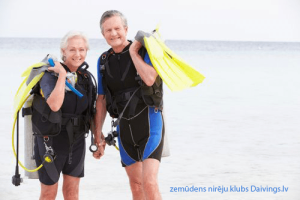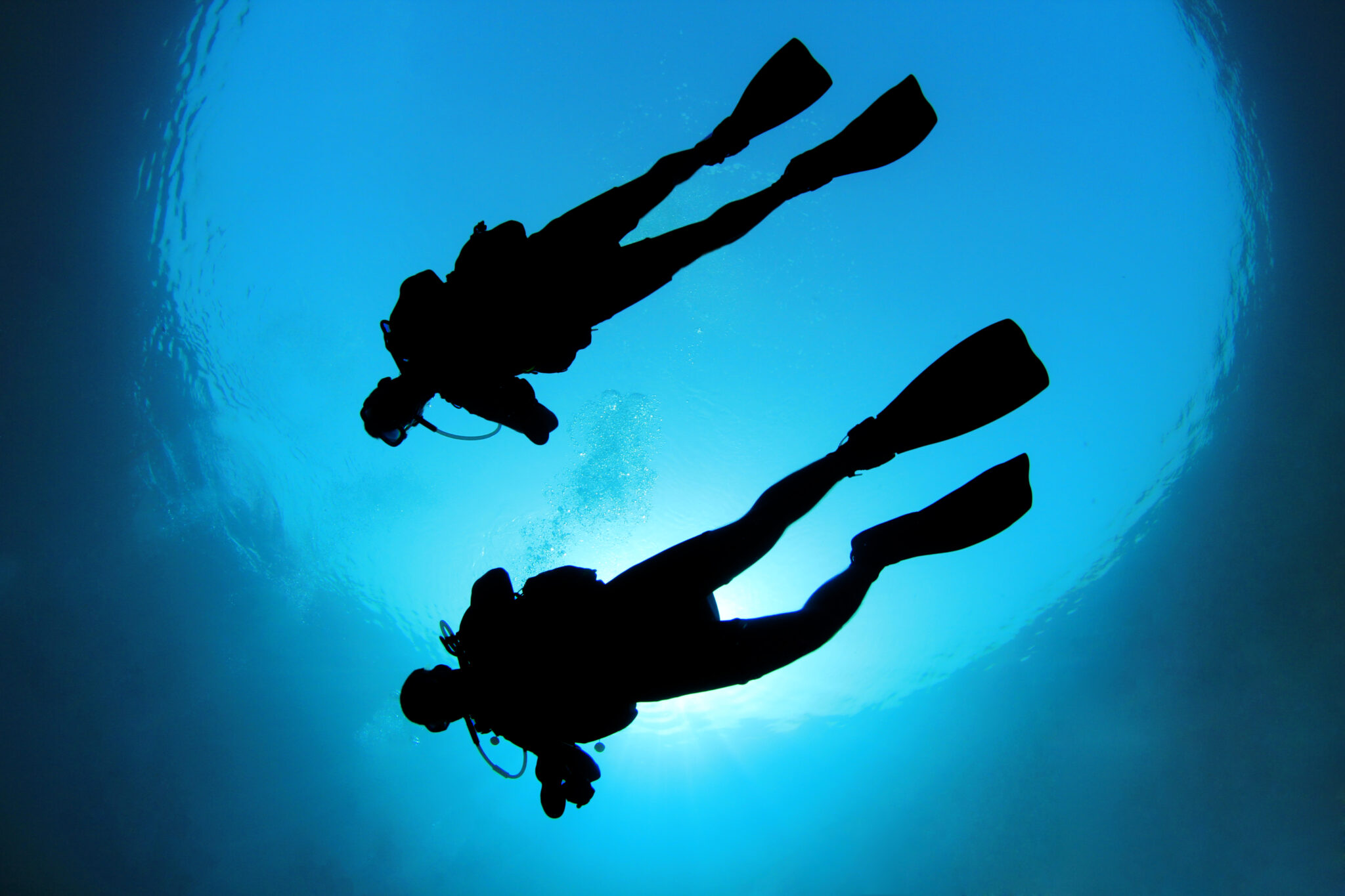William Lambert, the world's oldest diver, celebrated his 100th birthday by diving and commented, "While I wasn't dying I was just alive, now I'm alive!"
Diving is one of the few sports that does not have an age limit, several 70-year-olds have completed training at a diving club. Many families with children come (the minimum age is 10 to start diving), and grandfathers with grandchildren also come to the training, so that everyone can enjoy exciting diving together.
Table of Contents
Average age of divers
In recent years, more and more people at the age of 50+ are starting to learn to dive, when they finally have more time for themselves and understand when they want to discover something new, live an active life and not only spend time in sports, but also get new impressions. A common new hobby both reunites couples with long periods of cohabitation and fatigue in everyday life, and allows single people to meet new friends and like-minded people. According to 2021 data, there are 60% divers in the age group 40+.
Diving can be practiced by people whose health prevents them from engaging in other sports. Many studies have shown that scuba diving improves both physical and mental health. We all know about water gymnastics, which is so popular for seniors, because water allows you to perform exercises that are difficult to perform on land, diving takes it to the next level, allowing you to feel the free movement of your body under water.

At the same time, diving also works as a great antidepressant and stress reliever, diving significantly increases the levels of dopomin and serotonin, the so-called "happiness hormones", because during the dive the mind is completely cleansed, gaining a meditative state: feel clean with yourself and the underwater world. All this also significantly improves sleep quality and lowers blood pressure.
Diving is a very calm type of exercise, but it is an exercise that improves heart rate and blood circulation.
During diving, the diver breathes oxygen, a large amount of oxygen activates an important type of protein known as molecular chaperone (also called heat shock proteins). Some of these molecular chaperones directly protect the heart from injury; For this reason, patients are sometimes given extra oxygen before heart surgery.
Diving burns a lot more calories than many people think
🤿😀 Rest diving burns about 300 to 600 calories per hour, depending on the temperature and activity level. Although most recreational diving can be very relaxing, while including increased activity and low joint tension, which is beneficial to an individual's health, some types of diving can be tiring and can put an individual with predisposing conditions at potential risk of injury or incident. It is important to remember that physical fitness is a key factor in determining the potential risk of any type of increased physical activity, so the risk associated with increased activity will largely depend on the general physical condition of the diver.
The opportunities for diving are many and varied, usually for people who do not engage in this sport, the first associations are a trip to the colorful fish in the tropical waters. But it's just him, a way of diving, extremists will enjoy raging in the winter under the ice, scuba diving in the cold seas, visiting the depths of ships and planes, exploring underwater caves, etc., while lovers of calmer and risk-free diving can enjoy the warmth of southern Europe. And let's not forget about the opportunity to spend a great day in one of Latvia's clear lakes. Because diving is suitable for everyone who wants to try something new.
Diving is often mistaken for a men's sport, but it is not, more and more women around the world are involved in diving. Sometimes women are afraid of having to deal with heavy equipment, but let's remember that it is a team sport and divers, regardless of gender, always help each other.
Can vision problems interfere with diving?
No, it is possible to order a diving mask exactly according to your required parameters. Even blind people have the opportunity to safely enjoy the underwater sensations accompanied by a specially prepared guide.
Does amputation, paralyzed arm / leg, or other similar physical disabilities allow diving? Definitely, diving directly allows you to feel the freedom of movement that is not available on land. Diving is accessible even for people in wheelchairs.
Diabetes, asthma, oncology, heart disease - does it affect diving opportunities?
Patients with diabetes, asthma and oncology can mostly engage in diving. However, it should be noted that, especially in the case of diabetes and asthma, it is mandatory to warn the instructor before diving, and it should be noted that not all instructors are qualified to conduct diving for people with disabilities, so it is better to discuss this before starting training. The range of heart diseases is very wide, so this question cannot be answered unambiguously, each case must be considered individually and consult your cardiologist before starting a dive.
Is it possible that divers are more resilient to other environmental stresses as they dive? What about more resistance to diseases like cancer?
Croatian researchers compared experienced technical divers to divers a few years ago. It was found that there were specific changes in the genetic activity of divers' blood cells compared to divers, and that these changes help to counteract the negative effects of oxidative stress.
What are the risks of diving?
Statistics show that diving is a very safe recreational sport. Statistics on recreational diving are 1.8 out of one million (compared to 68 out of a million in downhill skiing, for example). Following proper and safe diving practices, the risks are very minimal, so it is also very important to choose a reliable and experienced diving club, as this is a sport that is only done in a team (at least 2 people). International organizations that certify instructors and divers set high standards for the training of group leaders, safety rules and standards of practice. When diving, people always go in pairs, less experienced people swim with the group leader or another experienced colleague, so that in case of problems, the other person can help immediately.
Where in Latvia can you go scuba diving?
🤿😀 For advice or assistance, call a PADI Diver Instructor t. 220-77-202 to find the right help and go scuba diving.

